Kutina Company Opts to Make Pet Beds Instead of Closing Down
January the 13th, 2022 - The global coronavirus crisis has put all economic entities into difficult waters, but one Kutina company headed by Marija Fresl, an entrepreneur who has been in the textile industry for many years now, launched Hudog & Hucat, a line of pet products for cats and dogs, last year.
As Poslovni Dnevnik/Marta Duic writes, part of this Kutina company's production was redirected to the production of canvas beds and toys and blankets primarily designed for dogs and cats.
Although only twn months have passed since the launch of this Kutina company's first product line, the beds and pillows from this brand have already found their way to the shelves of the Emmezeta retail chain in Zagreb, Split, Osijek and in the Serbian capital of Belgrade, as well as to some leading pet stores in Zagreb, Rijeka and Split.
“After I finished my studies in clothing technology, I opened a company and a boutique in my hometown of Kutina. I sewed, tailor-made dresses, costumes, wedding dresses... and I started enaging in this work on my mother's home sewing machine. Back in 2000, I bought several machines and started a sewing service for textile companies in Croatia and abroad. We worked for Benetton for many years, and our 40 employees produced 3,000 T-shirts a day. Back in 2015, in addition to the sewing service I offered, I also launched the women's clothing brand Tara fashion, which we've been selling in boutiques across Croatia ever since. I intend to dedicate myself more to this brand during 2022,'' explained Marija Fresl. But, as she added, the coronavirus crisis has hit everyone in the fashion industry hard because the importance of clothes fell into the background almost overnight.
“The option was to put the key in the lock or to try to reorient ourselves, so we adjusted so that we could maintain the production of cotton protective masks, which we initially supplied to large companies, and then later on to leading retail and drugstore chains and pharmacies. However, last year the sales of masks dropped significantly, so we instead took to taking the creation of the Hudog & Hucat brand more seriously, which is based on making pet beds,'' explained this Kutina company's innovative owner.
The production of the Hudog & Hucat line is located in Kutina, in an area covering 350 square metres in which they have about forty industrial textile machines, and wooden beds for them are made by a carpentry workshop which is also based in Kutina.
"Our capacities are large, we're ready to take on some more serious work and large quantities, so we can fulfill even demanding orders in a short time. For example, a truck with pet beds can be loaded in ten days, so our customers receive the goods within three days of ordering them.
I must emphasise the importance of the workshop staff, some of whom have been with me for fifteen years now. I know we can produce a quality product because whatever I imagine in my head, my girls do their best to create and find a solution for even the most demanding crafts. Quality associates allow me to have a high quality range of products for all tastes, as well as for all sizes of dogs,'' said Fresl.
Outside Croatian borders
Their products can be bought in large pet shops and stores across the country, but this Kutina company's goals don't stay within the boundaries of Croatia, and Fresl pointed out that they have just started expanding to foreign markets. They already have a point of sale in Graz (Austria), and are in negotiations with five centres in the region (Slovenia, Serbia, Bosnia and Herzegovina) and elsewhere in Europe, as well as across the pond the USA and Canada.
“Back at the beginning, we started with 25 items designed for dogs in several sizes and in a range of colours and different designs. We're planning exclusive products for cats, but also some more new products for dogs. We want to enable our clients to buy both new beds and certain accessories, such as covers, new fabrics and even leashes. We're not lacking when it comes to ideas. We want to sell Hudog & Hucat all over the world, but we'll always produce everything right here in Croatia,'' concluded this Kutina company's owner, Marija Fresl.
For more, make sure to check out Made in Croatia.
Mayor of Kutina and Three More Suspects Arrested
ZAGREB, 15 Dec 2021 - The mayor of the City of Kutina, 70 kilometers southeast of Zagreb, Zlatko Babić, and three more suspects in the case believed to be connected with the alleged white-collar crimes, were arrested by the police on Wednesday.
The Office for the Suppression of Corruption and Organised Crime (USKOK) and the police did not reveal the identities of the arrested persons.
Media outlets speculate that apart from Babić, also Davor Kljakić, who was until recently the chairman of the city council, an independent councilor Dražen Kinderman, and Darko Kolsek were arrested.
The arrests are believed to be connected with the recent accusations made by whistle-blower Adrijana Cvrtila.
After her accusations, Babić left the Croatian Democratic Union (HDZ) to become independent. On that occasion, he said that the accusations that he used his position to have some people hired prompted him to clear his name before state institutions without having "the name of my party dragged through the mud."
Cvrtila, the head of the local utility company Eko Moslavina, whose majority owner is the town of Kutina, said recently that Babić and the head of the local HSLS party branch, Davor Kljakić, had exerted pressure on her to make her hire individual members of their parties as well as relatives of local councilors or raise their wages in order to ensure those councilors' support for the town budget and budget revision.
Cvrtila has reported both Babić and Kljakić to the USKOK anti-corruption agency.
For more, check out our dedicated politics section.
Young Croat Josip Popcevic Pioneers Preservation of Super-Pollinating Bees
January 25, 2021 – Croat Josip Popcevic has already decided to dedicate his young life to little-known solitary bees. The reason? They are super-pollinators - our very future could depend on them
Croatia is not unknowledgeable when it comes to bees. Beekeeping is a traditional part of rural life in Croatia. Indeed, Slavonian honey is protected at an EU-level and the honey of Istrian is in the process of requesting the same. Croatian honey is renowned throughout the region. Slavonian honey is protected at an EU level
Croatian honey is renowned throughout the region. Slavonian honey is protected at an EU level
Vast tracts of land in Croatia are dedicated to successful agriculture. Here, too, the worth of bees is well known. Bees are known to pollinate upwards of 80% of all the crops we eat (pollination is how male and female plants reproduce and make seeds).
Garlic, parsley, apples, cherries, apricots, lemons, asparagus, pumpkin, cucumber, broccoli, courgette (zucchini), cabbage, carrots, cauliflower, aubergine (eggplant), watermelon, celery, kale, peppers and all berries are cultivated widely across Croatia, providing incomes, employment and food. The pollination of all of them relies on bees.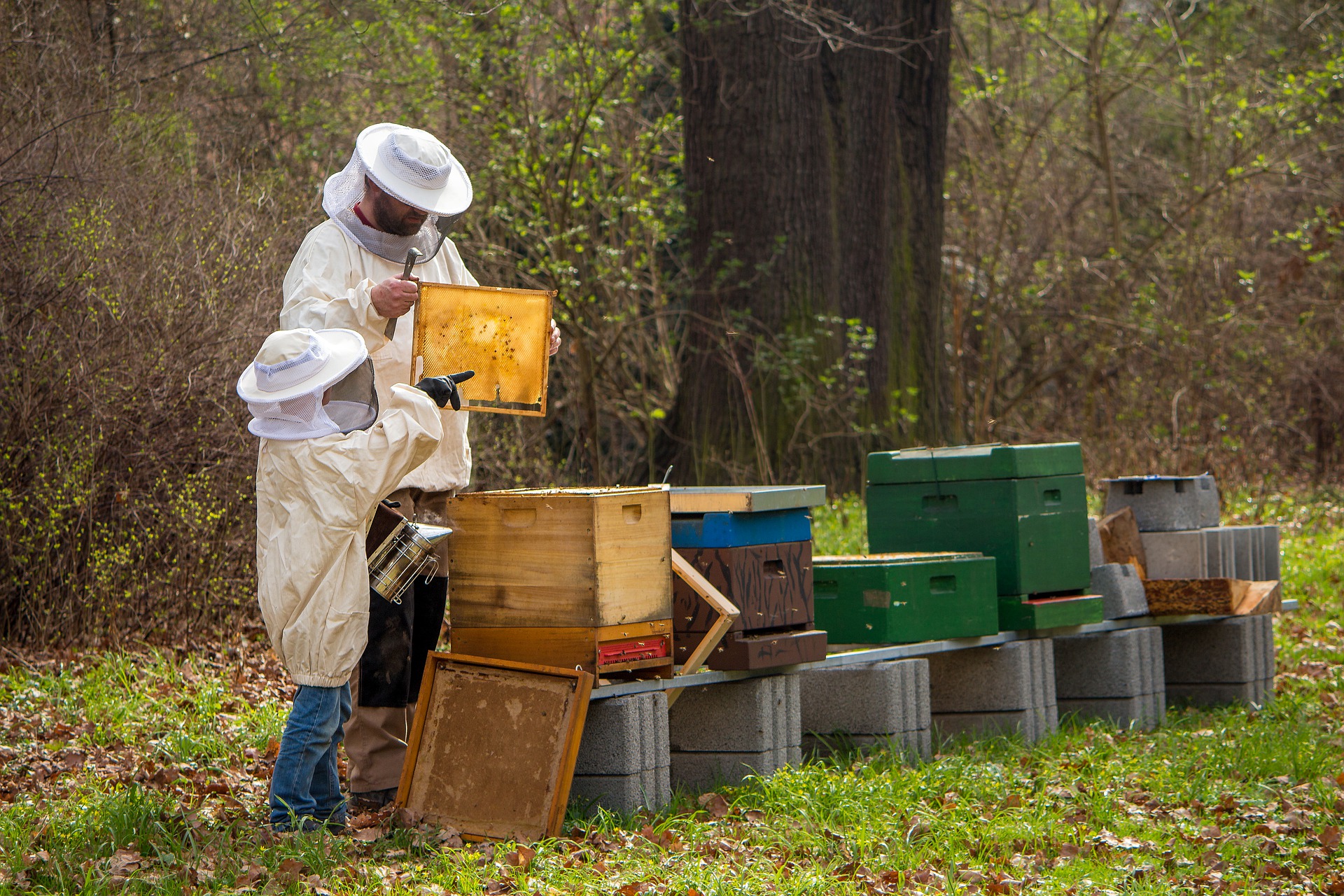 The honey made from beekeeping in Istria is currently applying to the EU for the same protected designation awarded to that from Slavonia
The honey made from beekeeping in Istria is currently applying to the EU for the same protected designation awarded to that from Slavonia
However, for all of the awareness of bees' importance in Croatia, much of is restricted to the familiar scenes of traditional beekeeping. We are only too aware of the diseases and pollutants that can damage these precious colonies that produce our honey and pollinate our plants.
But, the truth of the integral roles bees play in our livelihoods and food is actually very different from what we imagine. It is a truth far removed from the colonies and hives of mask-wearing, honey-collecting beekeepers. Because up to 90% of all bees do not live in colonies at all. Those who don't aren't social, community creatures at all. They live a solitary existence. They are solitary bees. And, these solitary bees are far more important to the pollination of our plants than the colonies that live in hives. Just one single Red Mason bee (one of the many types of solitary bee that lives in Croatia) is equivalent to 120 worker honeybees in the pollination it provides.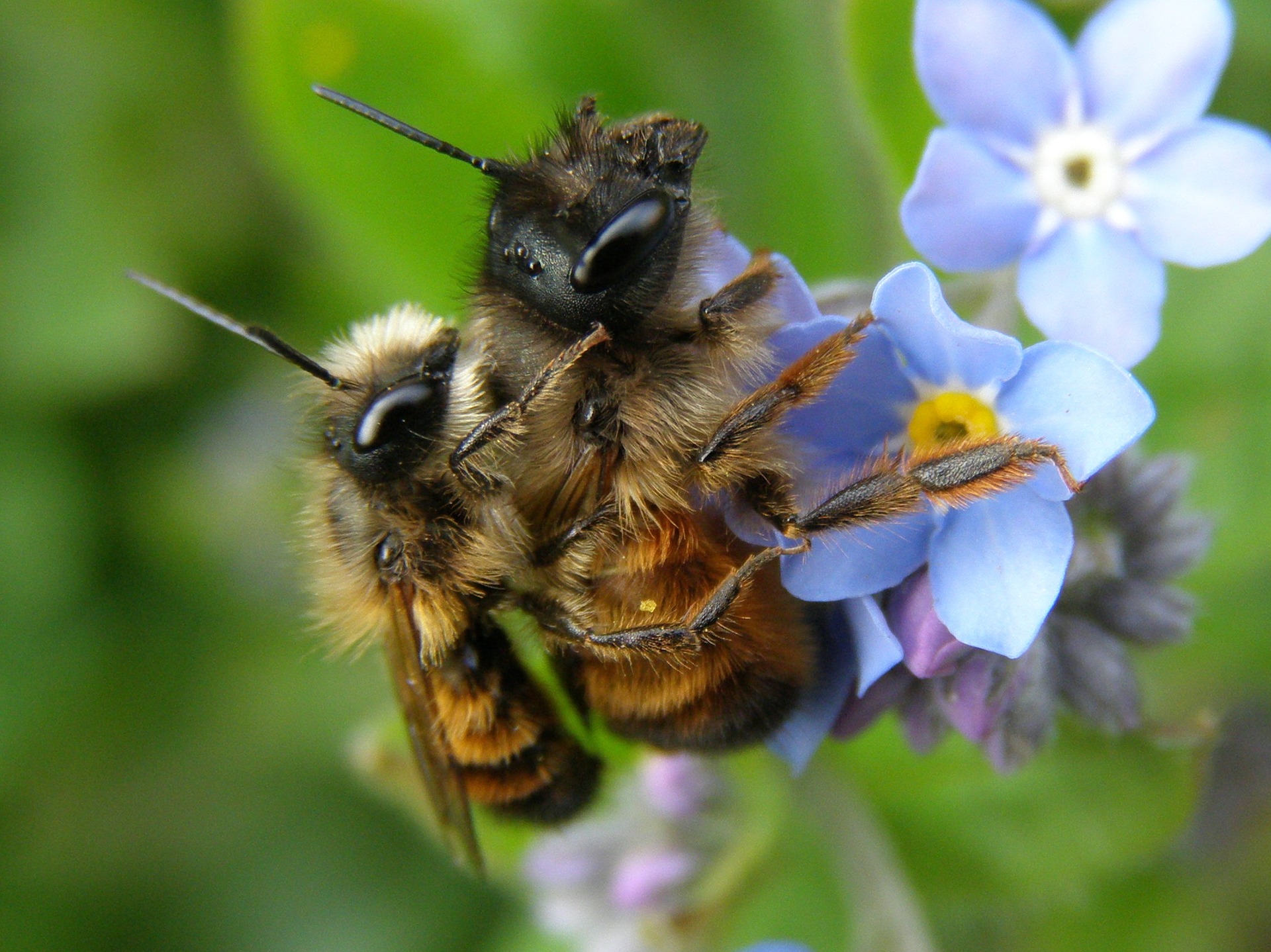 Solitary bees are the best pollinators of all bees
Solitary bees are the best pollinators of all bees
One person who is not unaware of the importance of solitary bees to our existence is 27-year-old Croat Josip Popcevic from Zbjegovača, a small village near Kutina. Since graduating in Production Engineering at the Faculty of Mechanical Engineering and Naval Architecture, Josip Popcevic has turned his mind back to the rural landscape from which he comes and has dedicated himself to the preservation, protection and furtherance of the solitary bee population so integral to our existence.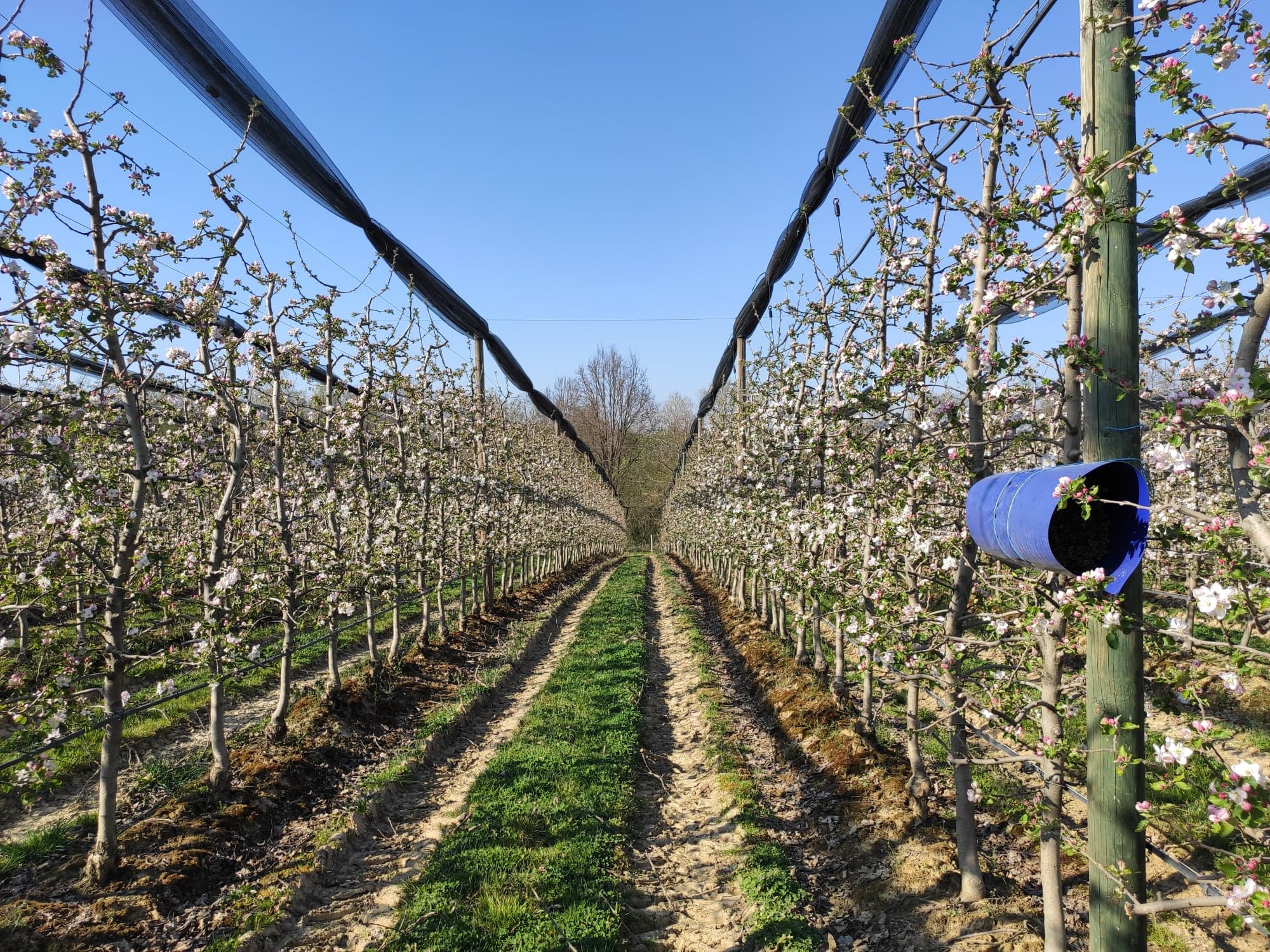 Housing for solitary bees made by Josip Popcevic © Cornuta / Josip Popcevic
Housing for solitary bees made by Josip Popcevic © Cornuta / Josip Popcevic
One of Josip Popcevic's great ideas for securing the future of these important solitary bees could perhaps only come from an engineer – he has decided to build houses for them. This is no easy task. Unlike honey bees, who can live comfortably alongside thousands of others within a colony, solitary bees – as their name suggests – live completely alone. Except when mating, they do not depend on other bees at all. They most often nest in the ground, in wood and other natural materials. They are more active at lower temperatures, do not fly far from where they live, they are less aggressive than colony bees and they do not sting.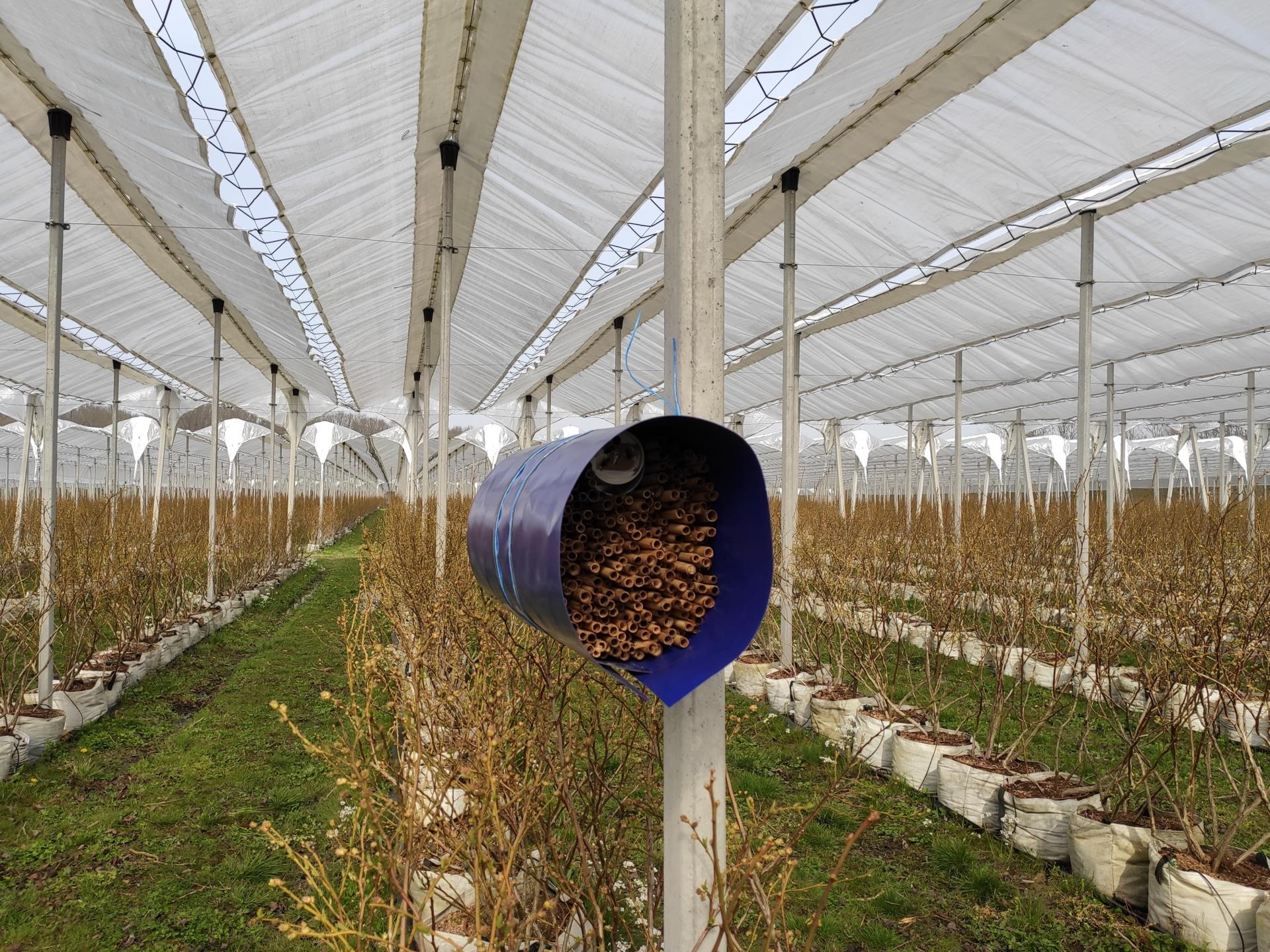 One of Josip's houses for solitary bees, at work within a Croatian agricultural endeavour © Cornuta
One of Josip's houses for solitary bees, at work within a Croatian agricultural endeavour © Cornuta
After recognising the worth of solitary bees to pollination, Josip Popcevic realised he could simultaneously run an endeavour of preservation in tandem with a business that was commercially viable to the agricultural industry. He founded the company Cornuta, through which he provided fruit growers with the service of pollination using solitary bees. Now he has extended the business to building houses for solitary bees. He now sells the houses to those operating within the agricultural sector. And, while his efforts currently lie solely within the borders of Croatia, thanks in part to a business competition grant, he has his eyes on expansion of his endeavours into both neighbouring countries and local communities.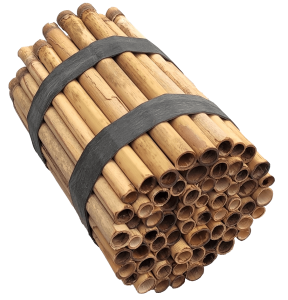 © Cornuta
© Cornuta
“I will soon start placing dwellings for solitary bees on public areas such as parks and school gardens,” Josip Popcevic told Jutarnji List in a recent interview. “I want to dedicate myself even more to educating citizens to become aware of the importance of bees for our planet. There is still a lot of room for improvement and I think that this activity will be even more popular in the years to come.”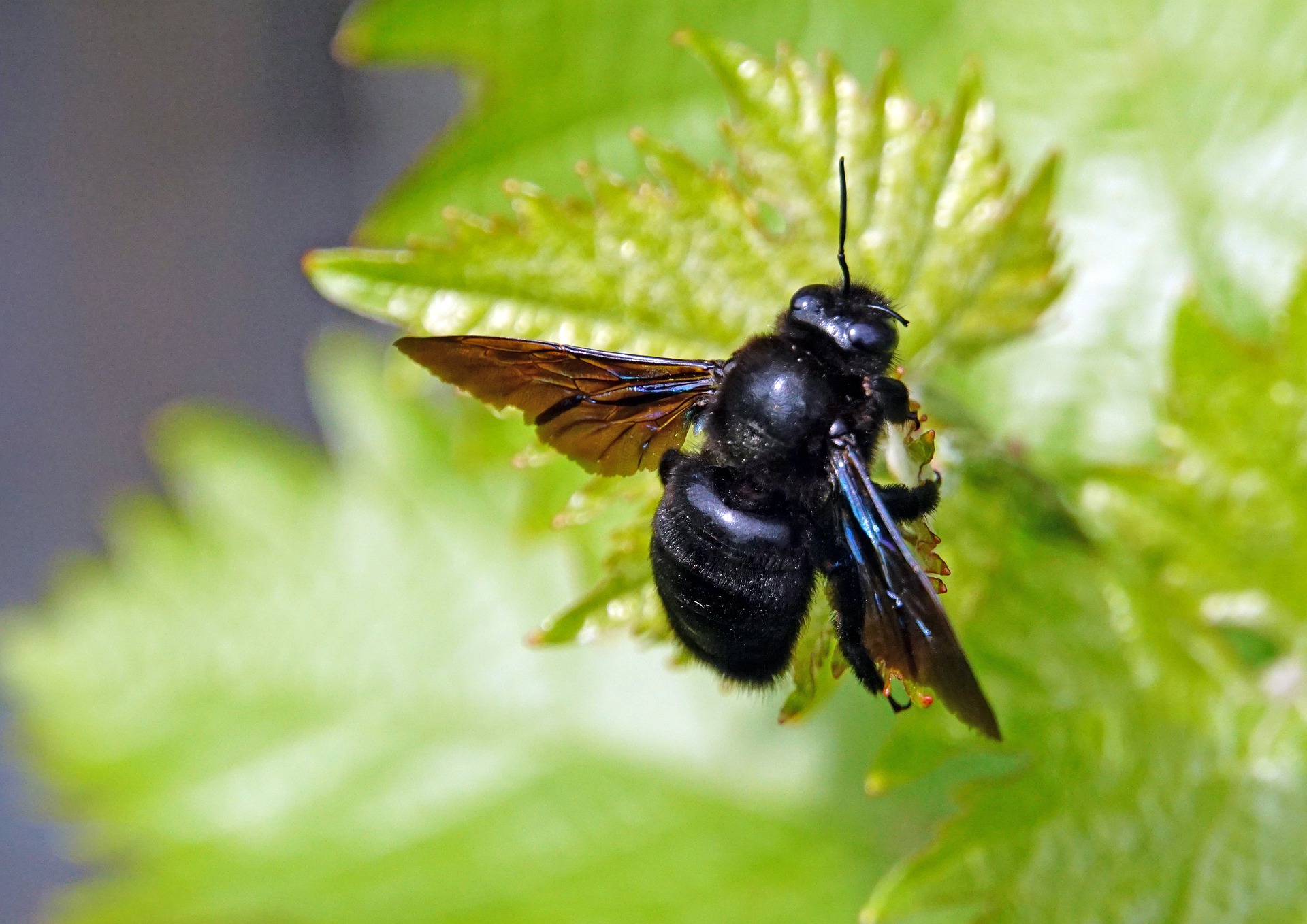 A solitary bee, one of the most important pollinators in the world
A solitary bee, one of the most important pollinators in the world
Kutina Has First "Smart" Business Zone in Croatia
ZAGREB, November 23, 2020 - The Kutina industrial-logistic zone is the first smart business zone in Croatia and it offers future investors a series of benefits like digital technology, exemption from utility contributions and for waste management for a period of five years, the Croatian Chamber of Commerce (HGK) said on Monday.
Presenting the project on Monday HGK said that the zone extends over 74 hectares and provides a series of benefits for future investors.
Apart from ensuring utility services, power and transport infrastructure the zone is geographically situated well and future investors will be exempt from paying utility fees for a period of five years, HGK said in a press release.
The zone will be the site of a new unique pilot programme - SMART&KIND - which is for digitising business infrastructure, including the Internet of Things among other things, a unique software to monitor business management of infrastructure and city assets which should lead to energy savings, the digitisation of essential information for investors and connecting them with citizens, it was said at the presentation.
City authorities will equip entrepreneurs at the business zone with smart modules to gauge electricity, water and gas consumption. The modules present an overview of zoning in the city and an analysis of available labour force.
Kutina Mayor Zlatko Babic said that this is a strategic project for the town and apart from attracting investors it will improve the city administration's management, open new jobs and generally upgrade living standards.
State-Secretary in the Central Office for the Development of a Digital Society, Bernard Grsic said that digital transformation is not just technology, it is changing business models and creating new values. This is a horizontal topic that impacts all spheres of society.
HGK also presented its online services which concludes the project of digitising the chamber and its activities and services.
The system encompasses eight online services (e-financing, e-public authorities, e-membership, e-legislation, e-fairs and promotions, e-launch a business, e-commerce information, and e-training). The system accelerates communication between the chamber and its members, it was said at a press conference.
E.ON Buys Gas Distribution Companies from Nova Gradiska and Kutina
ZAGREB, July 9, 2020 - The E.ON Croatia energy company on Thursday acquired two gas distribution and retail companies - Plin-Projekt from Nova Gradiska and Moslavina Plin from Kutina, becoming the third-largest gas distributor in Croatia with 43,000 customers.
With the acquisition of Plin-Projekt and Moslavina Plin, E.ON Croatia has become the 100% owner of another two gas distribution and retail companies with 19,000 customers, the company said in a statement on Thursday without disclosing the value of the transaction.
In recent years, E.ON has taken over two gas companies in Croatia - Koprivnica Plin and Montcogim Plinara. With the latest acquisitions, E.ON has become the largest gas distributor in the country, with 43,000 customers within the 1,650-km gas network.
"We are successfully continuing to achieve our strategy to become one of the leading companies on the Croatian gas distribution market," CEO Karl Kraus said in the statement.
Until this year E.ON Croatia had operated under the name RWE. As a result of the reshuffling of the European energy market, German energy giant E.ON took over RWE's subsidiary Innogy, of which RWE Croatia and its affiliates were part.
Croatian Man Turns Hobby into Business Making Furniture from Pallets
Ever been browsing online mindlessly and come across a YouTube video showing how to create something and thought: Hang on, I could do that? One Croatian man from Kutina did exactly that and has thus decided to turn his hobby into a business, and if he had the time to pay attention solely to that, it would take off even faster than it has done already.
As Novac/Jasmina Trstenjak writes on the 28th of April, 2019, if we open our eyes a little bit, we'll see that there are ideas to start our own business all around us. Some of us stumble upon them, recognise them, and start from the idea itself, and some ideas literally come and find us and prevent us from bypassing them and remaining just as ideas.
Matija Kašner from the continental Croatian town of Kutina, who makes furniture from disposable pallets, says that in the case of his very own creation Sklepaj.me "everything began from itself, and quickly".
When my wife and I moved into this house, we didn't particularly like the furniture in the stores, and as I saw people doing innovative things from palets online, I decided to make a bed out of pallets and then a terrace. So then I decided to put what I'd made on Njuškalo (a Croatian buy and sell website) and try to sell it. One woman called me who wanted to equip her entire apartment house in Crikvenica with tables and chairs, and that was the first big job from which it all began,'' says Kašner.
He remembers thinking how big that job was and wondered whether or not he could manage to do it all in time. But, with the help of friends and even without the right tools - he succeeded. As his first client needed an invoice, he opened an obrt (small company) and officially turned his hobby into a job back at the end of 2013. Then, another project came for an IT company and that was great in the full sense of the word - he equipped the entire building.
The young IT team wanted something different, they ordered armchairs, beds because they had a "chill out" room, and the like. Sklepaj.me quickly started to grow bigger, and its initiator, an economist by profession, said the job would have grown at an even faster pace if he was only doing that.
Namely, Kašner comes from an entrepreneurial family, and given his business versatility, the entrepreneurial genes have obviously been passed down to him and, besides making furniture, he grows raspberries, rents out electric bikes and conducts tourist tours, is engaged in a family business, and addition to that, he's employed in a company in which he's the head of the branch.
''Sklepaj.me is just a hobby that in some way created itself and which I do after work. We don't live on that. We live from our wage,'' Kašner makes sure to confirm.
But, if he was engaged solely in this hobby, could he live from it? The idea with the pallets seems to be a great one. What's the real market potential? Where are the palets obtained? Is it an expensive hobby? How lucrative is it...? There are many questions.
''I'd expand the range and then yes, I then could live from it, but I'd have to exhibit at fairs, I'd have to be present in design spheres, etc. The order, or its quantity, depends on the revenue and sometimes that can be high only even with just one or two orders per year. Averages are difficult to come up with. There are no such rules. If I had to do three big orders per year for around 30,000 kuna, which is one nice cafe or hostel, I'd sign up tomorrow to do only that. That could provide for a decent life,'' Kašner says when discussing his innovative business that brought the strongest revenue in six years last year with only one project, which was his largest ever so far, for Zrće.
He also revealed that he's now negotiating orders that would be almost of the same size as that one. Namely, two shelves of furniture (60 armchairs, 30 tables, 60 bar tables...) were sent to Zrće, a project on which for two or three months, he worked intensively without any contact with the outside world for 10-12 hours per day.
When it comes to a series, everything depends on how many pieces someone orders, and so far he has already worked on tables, armchairs, deck chairs, bar stools and desks and even lamps. One armchair costs between 400 and 600 kuna, depending on whether they want a sponge putting on it or not, tables are about the same price, deck chairs are about 800-900 kuna, and the bar tables are of the same rank as deck chairs.
"I like to make sure the prices are acceptable, so when someone goes to the store and sees a rattan deck chair, he can see that for roughly the same money he can get something unique, and something that not many will have,''
He also mentions the seasonal rhythm of this job because someone who owns a tourist facility orders the furniture in the winter and then winter is spent working for the tourist season in summer. Then comes stagnation in June and July, and in August there are orders to arrange children's rooms, renovations for peoples houses and other similar things.
As Croatia's economic and demographic issues continue, there's a lot to be said for being creative and starting your own business to generate some income, even if it's just extra cash on the side, and this innovative and talented gentlemen from Kutina is the perfect example of exactly that mindset.
Make sure to follow our dedicated Made in Croatia and business pages for much more on Croatian companies, Croatian products and services and Croatian innovation.
Click here for the original article by Jasmina Trstenjak for Novac/Jutarnji
Wine Barrel Factory Opened in Kutina
The Klik Par company opened a factory for the production of oak barrels for the wine industry in Kutina, and the initial value of the Italian investment is 1.5 million euro, reports Agrobiz.hr on November 2, 2018.
“Our investment in Kutina amounts to 1.5 million euro this year. We will reach the same level of investment in the next year and in 2020 as well. As a leader in this sector, we will thus ensure a steady growth of production, so we will soon double the number of workers from the current 11,” said managing director Piero Garbellotto at the inauguration ceremony. He added that Klik Par would become Italian company Garbellotto’s headquarters for eastern Europe.
Klik Par was founded in 2000 and has now launched the oak barrels production as a result of the investment made by the company from Conegliano, which has been producing wine barrels for wine cellars around the world for the last 243 years.
The Garbellotto brothers, who nowadays run the family company, will continue their cooperation with Croatia which was initially started by their father in 1950. The Italian company is one of the most prominent European producers of barrique barrels, and it has used Slavonian oak wood for barrels since 1950.
The Garbellotto barrels can be found in wine cellars around the world. At the plant opening, it was pointed out that Croatian winemakers will no longer have to travel to Italy to buy good barrels since they will be able to purchase them directly from the factory in Kutina.
Garbellotto pointed out that his company had good cooperation with the representatives of Croatian Forests, the Croatian Wood Cluster, the Kutina town administration and others.
The cooperation was also praised by forestry director for the Zagreb area Damir Miškulin, who pointed out that the Italian company had a promising future in Croatia because the production of barrels represented a high level of finalisation of the wood processing.
The new factory in Kutina business zone has also received endorsements from Sisak-Moslavina County Prefect Ivo Žinić and Kutina Mayor Željko Babić.
Want to read more about Croatian wines? Click here.
Petrokemija Recapitalisation Successfully Concluded
ZAGREB, October 31, 2018 - The oil company INA and the Prvo Plinarsko Društvo gas supplier have signed an agreement with the Restructuring and Sales Centre (CERP) for the recapitalisation of the Petrokemija artificial fertiliser manufacturer, paying a total of 300 million kuna of fresh capital for the Kutina-based company, which will make them its majority owners, the two companies said in a statement on Wednesday.
"The investors INA and PPD have signed with CERP, the representative of the Republic of Croatia, an agreement on Petrokemija's recapitalisation. The two companies have paid a total of 300 million kuna for 30 million Petrokemija shares, each giving 150 million kuna, which will make them Petrokemija's majority owners, with a stake of more than 50% and the related management rights," INA and PPD said in the joint statement.
The two companies have carried out the transaction through a company they have jointly set up - Terra Mineralna Gnojiva d.d. (TGM), which will operate in line with the signed shareholders' agreement.
The latest developments have prevented the company's bankruptcy and the decision was unanimously supported by representatives of the two biggest shareholders on INA's Supervisory Board, the statement said.
"The purpose of the investment is to ensure the continuation and development of artificial fertiliser production at Petrokemija. The partners will cooperate in good faith and make effort to enable Petrokemija to continue with its activities. INA and PPD will therefore focus on improving Petrokemija's current financial situation by improving its product portfolio, making its operating costs sustainable, refinancing inherited debts and further optimising the business process," the statement said.
It also quoted INA Management Board chair Sandor Fasimon as saying that INA had once again proven to be a stable and reliable partner to the company as well as the entire Croatian economy and local community.
Petrokemija on Monday published a public invitation to subscribe for a minimum 40 and a maximum 45 million new shares, whereby it plans to collect at least 400 and a maximum of 450 million kuna of fresh capital. The subscription for shares lasts until 4.30 pm, October 31.
Economy Minister Darko Horvat said on Wednesday that the recapitalisation of mineral fertiliser producer Petrokemija was successful. "This is a third attempt at recapitalisation or privatisation and I dare say that we've made it," Horvat said in response to questions from the press.
Horvat noted that the involvement of different government departments and Prime Minister Andrej Plenković's determination to bring this process to a close paved the way for the transformation of Petrokemija into a privately owned company.
Davor Žmegac, who until now was a member of the management board, replaced Đuro Popijač as chairman of the management board.
Read more about Petrokemija here.
Petrokemija, Rijeka Shipyard Report Dismal Business Results
ZAGREB, July 31, 2018 - Mineral fertiliser maker Petrokemija ended the first half of 2018 with a loss of 176 million kuna, considerably higher than at the same time in 2017 when the loss was 40.3 million kuna, the Kutina-based company said in a financial statement on Tuesday.
Petrokemija’s Losses Increase by 95 Million Kuna
ZAGREB, May 1, 2018 - The Petrokemija artificial fertiliser manufacturer said on Monday it was completing its ownership transformation and giving investors a clean start, for which purpose the year 2017 was used to eliminate all risks underlined by auditors.


